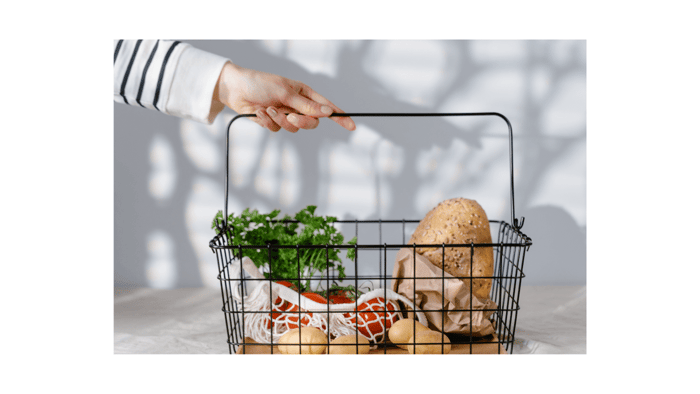Grocery shopping is a daily activity that offers a powerful opportunity to adopt eco-friendly habits. By eliminating plastic bags and cutting back on plastic packaging, we can reduce waste and make a positive impact on the environment. At Mudd House Mercantile, a zero waste store, we’re proud to support your sustainable grocery shopping journey with practical tools like our large produce bags, helping you shop responsibly and protect our planet with sustainable alternatives.
The Problem with Plastic in Grocery Shopping
Plastic waste is a growing environmental concern. According to studies, only a small percentage of plastic waste is recycled, while most ends up in landfills, oceans, or as litter. Sustainable grocery shopping can dramatically reduce this impact and support a healthier planet. By transitioning to sustainable food shopping practices, such as choosing alternatives to plastic bags and packaging, we can make meaningful strides toward reducing the environmental harm caused by traditional groceries.
Step 1: Rethink Your Shopping Bags
The first step to sustainable grocery shopping is eliminating single-use plastic bags. Instead, opt for reusable bags that are durable and environmentally friendly. At Mudd House Mercantile, we recommend using our sturdy String Bags for fruits and vegetables. These bags are lightweight, washable, and perfect for reducing your reliance on plastic, which makes them excellent sustainable items for your trips to the sustainable grocery store or when buying sustainable groceries.
EcoBags String Bag
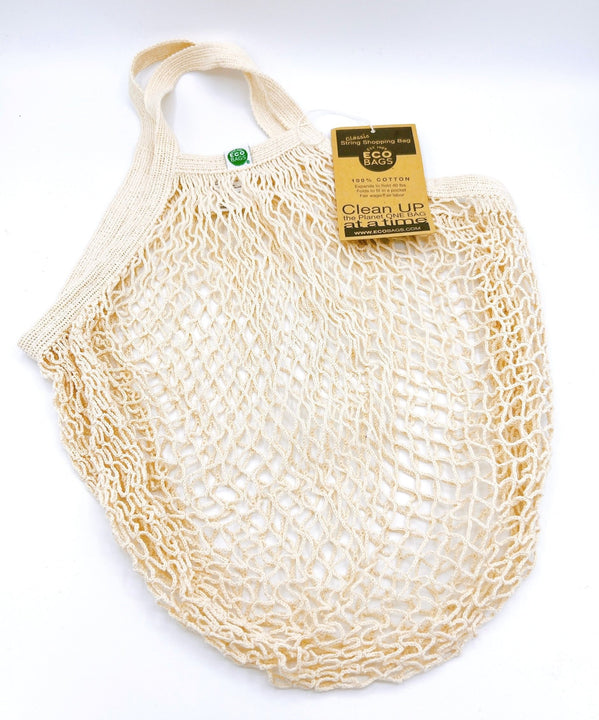
$15.00
Your New Go-To Bag EcoBags String Bag is your ultimate partner for zero waste shopping, beach excursions, and daily errands. Crafted from 100% organic cotton, this eco-friendly bag is free from harmful chemicals and dyes, making it a top choice… read more
Other Bag Options:
- Canvas Totes: Ideal for carrying heavy items like canned goods and beverages.
- Mesh or Net Bags: Perfect for produce, as they allow airflow and prevent spoilage.
- Insulated Bags: Great for frozen and perishable items to keep them cool during transport.
Step 2: Shop the Perimeter of the Store
Most plastic packaging is found in the center aisles of grocery stores, where processed and pre-packaged goods are located. By focusing on the store’s perimeter, you’ll find fresh produce, dairy, and bakery items, which are often available with minimal or no packaging. Bring along reusable bags and containers to carry these items and make sustainable grocery shopping easier and align with your goal of sourcing sustainable groceries.
Pro Tip: When buying bread, skip the plastic-wrapped options and go for fresh loaves from the bakery section. Ask if they can package your bread in paper or place it directly into your reusable bag.
Step 3: Embrace Bulk Shopping
Purchasing in bulk is a highly effective way to reduce packaging waste and save money. Many grocery stores offer bulk sections for products like grains, spices, bath and body essentials, and even household cleaning products. By bringing your own reusable containers, jars, or bags to environmentally friendly grocery stores, you can stock up on necessities without adding to plastic waste, all while supporting a more sustainable lifestyle. Our bulk bags are great for adding any bulk dry foods or produce!
Produce and Bulk Bags
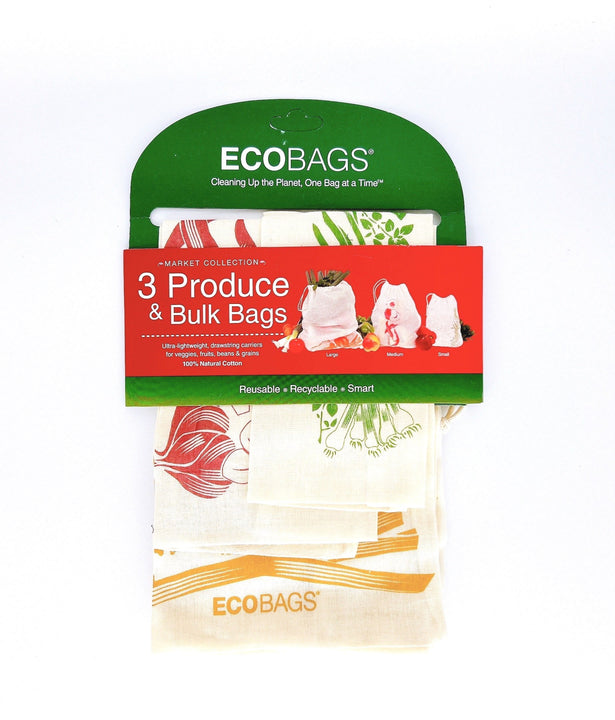
$15.00
Eco-Friendly and Versatile Storage Solution Discover the ultimate in sustainable storage with our EcoBags Produce and Bulk Bags. Perfect for those committed to zero waste shopping, these reusable bulk bags are crafted from top-notch cotton and are free from harmful… read more
How to Get Started:
- Weigh Your Containers: Most stores allow you to weigh your empty jars or bags before filling them. This way, the weight of the container is subtracted from the total at checkout.
- Label Your Containers: Make sure to clearly mark your containers with product information using a grease pencil or washable marker, including the product code or number.
- Choose Recyclable Options: If bulk bins use plastic scoops or dispensers, check if they are part of a closed-loop recycling system, ensuring they are properly reused.
Step 4: Choose Plastic-Free Produce
Many fruits and vegetables are unnecessarily wrapped in plastic. Opt for loose produce and use reusable bags like our large produce bags to carry them home. If your store offers paper bags, they can also be a good alternative for items like mushrooms and leafy greens.
EcoBags Large Produce Bag
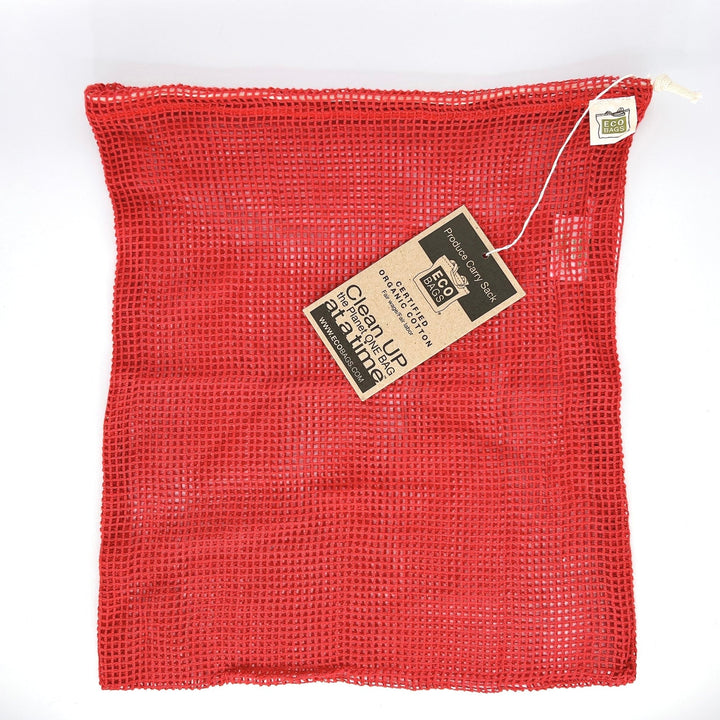
$7.25
Your Essential for Eco-Friendly Shopping Discover the EcoBags Large Produce Bag, a must-have for anyone committed to zero waste shopping. Made from 100% organic cotton, this bag highlights your dedication to sustainable goods, free from harmful chemicals and dyes. Ample… read more
Shopping seasonally and locally not only ensures fresher produce, but it also reduces packaging waste. By supporting local farmers' markets, you're helping boost the local economy and cutting down on the carbon footprint linked to long-distance transportation of goods.
Step 5: Avoid Pre-Packaged Foods
Single-use plastic dominates the packaging of convenience foods. Instead of pre-packaged salads, snacks, or meals, prepare your own at home. Buy fresh ingredients and make larger batches to save time and reduce waste. For snacks, consider buying items like nuts and dried fruit in bulk and storing them in reusable containers.
Step 6: Bring Your Own Containers
For items like deli meats, cheese, or prepared foods, bring your own reusable containers. Many grocery stores are happy to accommodate this request. Simply ask the counter staff to weigh your container before adding food, ensuring you’re charged only for the product.
Step 7: Choose Alternatives to Plastic-Packaged Beverages
Plastic bottles are a significant contributor to grocery-related waste. Whenever possible, choose beverages packaged in glass or aluminum, which are more easily recycled. Better yet, invest in a home water filtration system, soda maker, reusable water bottle and travel coffee cup to avoid single-use beverage containers entirely, reducing your need for plastic-packaged items.
Cognitive Surplus Water Bottle
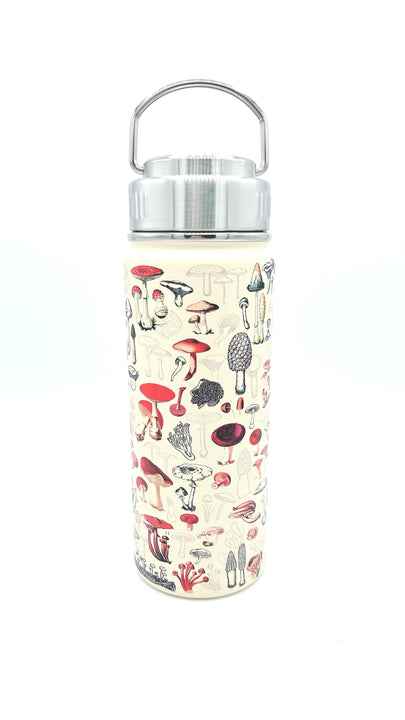
$40.00
Meet Your New Favorite Water Bottle Stay stylish and hydrated with the Cognitive Surplus Water Bottle, crafted from top-notch stainless steel for unbeatable safety and durability. This sleek, insulated bottle is perfect for all kinds of drinks, making it an… read more
KeepCup
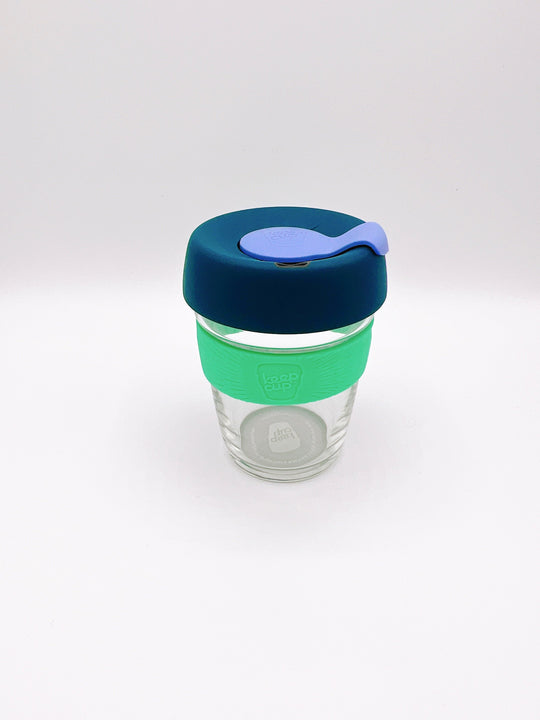
$30.00
Sip Sustainably with Style The KeepCup is the perfect partner for coffee on the go, crafted from premium, eco-friendly products like glass and BPA-free plastic. These materials ensure a safe, non-toxic, and clean drinking experience, making the KeepCup a sustainable… read more
Step 8: Choose Compostable and Biodegradable Packaging
With growing consumer demand for sustainable solutions, many brands are now offering products in compostable or biodegradable packaging. When shopping, look for items labeled as certified compostable or packaged in eco-friendly materials like recycled paper or bamboo, supporting sustainable items that protect the planet.
Step 9: Minimize Food Waste
Sustainable grocery shopping isn’t just about the packaging—it’s also about how much you buy and use. Make a meal plan and stick to the list. Store food properly to reduce spoilage.
Leftovers Tip: Invest in glass or stainless-steel food storage containers and beeswax wrap to keep leftovers fresh without relying on single-use plastic wrap.
Meli Wraps
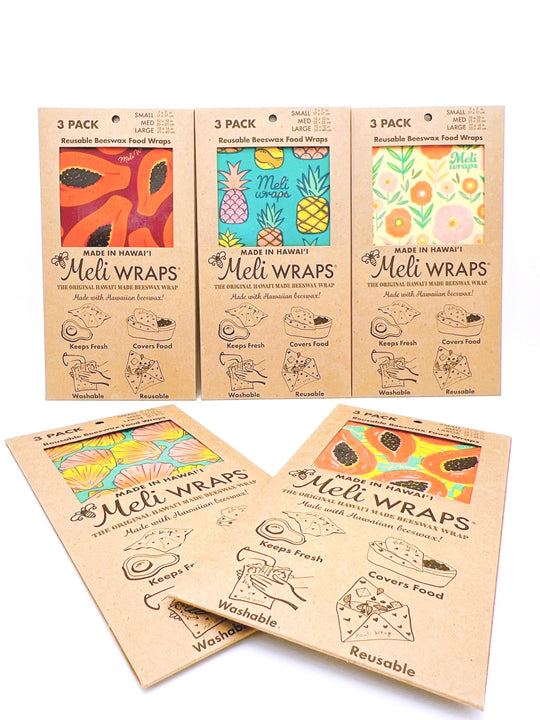
$24.00
Your Go-To Eco-Friendly Food Wraps Meet Meli Wraps—your fun, reusable alternative to plastic wrap! Crafted from organic cotton, beeswax, tree resin, and organic plant oils, these eco-friendly wraps keep your food fresh while bringing a touch of style to your… read more
Step 10: Support Brands Committed to Sustainability
Many companies are now producing products with sustainability in mind. At Mudd House Mercantile, we carefully curate our offerings to include items that align with eco-friendly values. By choosing products like our Large Produce Bags or Meli Wraps, you’re supporting a more sustainable future and purchasing sustainable products that help reduce your environmental footprint.
Benefits of Sustainable Grocery Shopping
- Environmental Impact: Reducing plastic waste helps keep landfills and oceans cleaner.
- Healthier Choices: Shopping sustainably often means buying fresher, less processed foods.
- Cost Savings: Many sustainable practices, like buying in bulk or avoiding single-use items, save money in the long run.
- Community Support: Shopping locally or from eco-conscious businesses helps build stronger communities.
Eco friendly grocery shopping is a powerful way to contribute to a healthier planet. By making small changes—like swapping single-use plastic for reusable alternatives, supporting local farmers, and avoiding unnecessary packaging—you can significantly reduce your environmental footprint. At Mudd House Mercantile, a reusable store, we’re here to support your journey toward sustainability. Together, let's build a more sustainable future, one grocery trip at a time.

